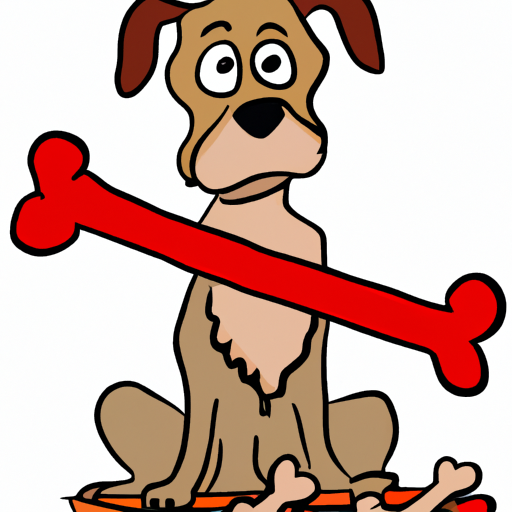As a devoted dog parent, you know that your furry friend’s dietary needs differ significantly from your own. One question that often arises among dog owners is: why can’t dogs eat chicken bones? This article will delve into the reasons behind this, the potential dangers that chicken bones pose, and what to do if your dog ingests one.
Table of Contents
1. The Dangers of Chicken Bones
2. Why Dogs Can’t Digest Chicken Bones
3. What to Do if Your Dog Ingests a Chicken Bone
4. Alternative Treats for Your Dog
5. Frequently Asked Questions
Key Takeaways
- Chicken bones can splinter and cause serious damage to a dog’s digestive system.
- The risk is present in both cooked and raw chicken bones.
- If a dog ingests a chicken bone, immediate veterinary attention is required.
- There are safer chew alternatives available for your dog.
The Dangers of Chicken Bones
Chicken bones, especially when cooked, can easily splinter when chewed or swallowed. These splinters can cause serious damage to your dog’s mouth, throat, or intestines. In severe cases, they can puncture your dog’s digestive tract, leading to a potentially life-threatening situation.
According to the American Kennel Club, giving your dog chicken bones can lead to various health problems, including choking, gastrointestinal obstruction, and even rectal bleeding. Thus, it’s crucial to keep chicken bones out of your dog’s reach.
Why Dogs Can’t Digest Chicken Bones
Some might argue that dogs are descendants of wolves and should handle bones just fine. However, domestic dogs have evolved and are not equipped to safely digest chicken bones. They lack the necessary jaw structure and digestive enzymes required to process these bones, leading to potential digestion issues and health risks.
It’s worth noting that not only cooked chicken bones are dangerous. Raw chicken bones can also pose a threat due to the risk of bacterial contamination, such as Salmonella. OneTopDog has a helpful article on safe food handling for dogs, which you might find useful.
What to Do if Your Dog Ingests a Chicken Bone
If your dog accidentally ingests a chicken bone, it’s important not to panic. Monitor your dog closely for signs of distress, such as gagging, vomiting, loss of appetite, or unusual behavior. If you notice any of these symptoms, seek immediate veterinary attention.
Remember that time is of the essence in these situations. It’s always better to be safe than sorry. This article provides more in-depth information on potential dog health issues and what to do.
Alternative Treats for Your Dog
While chicken bones are a no-go, there are plenty of safe and healthy alternatives for your dog to chew on. Options include specially designed dog chews, durable toys, and bone alternatives like bully sticks or dental chews.
It’s essential to choose a size-appropriate chew for your dog and always supervise them while they are chewing. No chew is entirely safe, and a dog can choke on or swallow large pieces of any chew. This article on OneTopDog reviews various dog toys and can help you find a suitable alternative for your pet.
Frequently Asked Questions
1. Can dogs eat any type of bone?
While some bones are less dangerous than chicken bones, no bone is completely safe. It’s best to provide your dog with approved dental chews or toys instead.
2. What should I do if my dog swallowed a chicken bone?
Monitor your dog for signs of distress, including gagging, vomiting, loss of appetite, or unusual behavior. If you notice any of these symptoms, seek immediate veterinary attention.
3. Are there any safe alternatives to bones for dogs?
Yes, there are many safe alternatives, such as dental chews, bully sticks, and durable toys. Ensure the chew is size-appropriate and always supervise your dog while they are chewing.
In summary, while it may be tempting to give your dog a chicken bone, it’s crucial to remember the potential dangers they pose. With plenty of safe and enjoyable chew alternatives available, there’s no need to risk your dog’s health with chicken bones.



